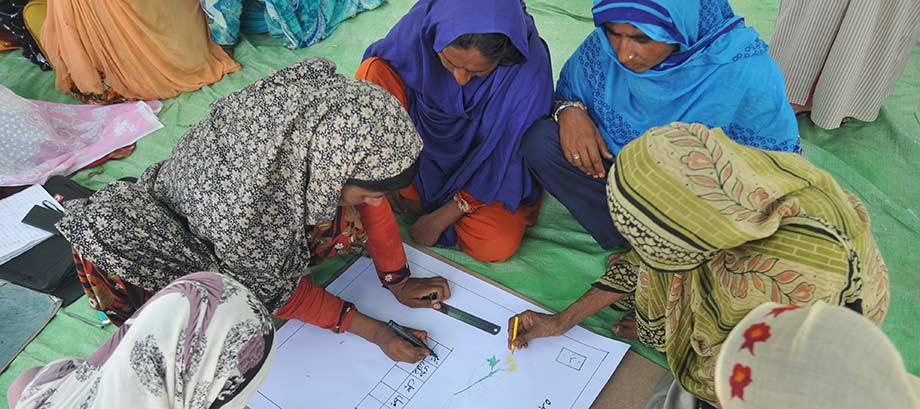An eye-opening exploratory mission: influencing project design and partnership development
In September 2019, FAO undertook an inception mission in Pakistan as one of the three selected countries in the FMM subprogramme ‘Generational Gaps and Eliminating Child Labour in Agriculture’.
A portion of current FMM resources are supporting a larger inter-agency programme called CLEAR COTTON. This four-year programme is implemented with and led by the International Labour Organization and focuses on eliminating child labour and forced labour in cotton, textile and garment supply chains in Burkina Faso, Mali and Pakistan. Through the FMM, FAO is leveraging resources and improving the livelihoods of families dependent on child labour in Pakistan.
The exploratory mission proved to be a success story in terms of organizational and partnership achievements. The mission included a capacity development workshop on addressing child labour in agriculture, meeting various stakeholders and potential partners associated with the project along with a field mission in Punjab.
The FAO team met with group of women who expressed their concerns on chemical pesticide exposure and showed the visual health issues they were enduring. They also described some of the challenges their community was experiencing when it comes to working conditions as well as child labour. In particular, the division of labour between genders and the limited access to education amongst rural adolescent girls.
Based on all these encounters, and before livelihood activities would be implemented, additional research on the gendered division of labour in family farming and its nexus with child labour amongst cotton growing communities in Punjab appeared indispensable. Therefore, research conducted under the FMM initiative will aim at defining economic empowerment activities for women, that will enable families to be less dependent on their children‘s work. It will recommend dialogue mechanisms in order to promote a better division of labour amongst households, as well as needed instruments to improve access to education amongst girls and boys.
Programme
4. Generational gaps, women empowerment and decent rural employment
Subprogramme
Generational gaps and eliminating child labour in agriculture
(FMM/GLO/137/MUL)
Share this page

